
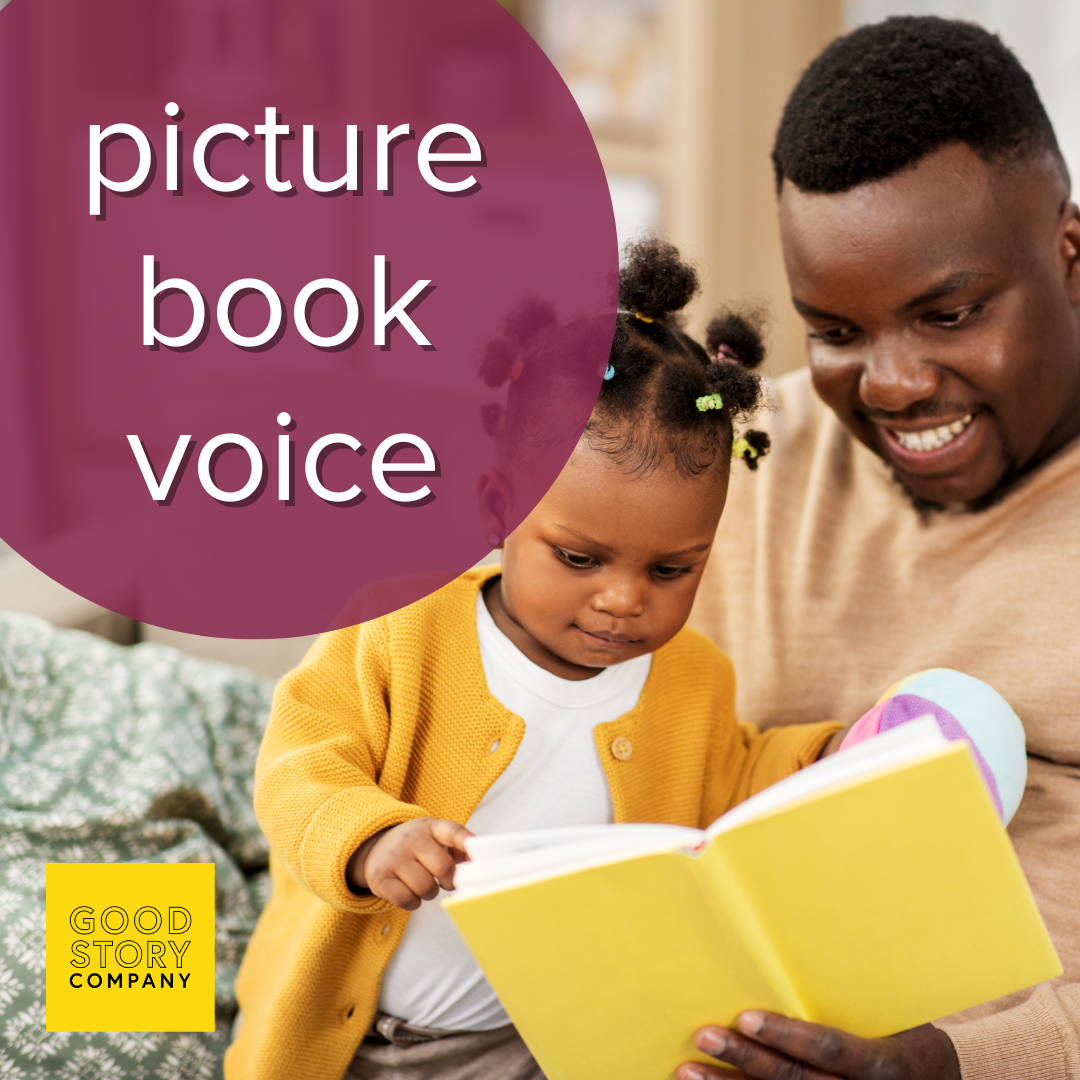
Picture Book Voice
Your voice is unique to you. It’s how you talk; the combination of sounds, the words you choose, your sarcasm or humor, etc. Those same idiosyncrasies factor into writing voice. It’s a writer’s stylistic choices, the POV character’s personality, and the audience you’re telling the story to. So, what’s picture book voice?

3 Writing Practices To Make You A Better Memoir Writer
If you’re struggling to figure out how to write your memoir or can’t seem to find the right words, here are three writing practices to make you a better memoir writer and help your memories, reflections, and musings shine bright and clear.
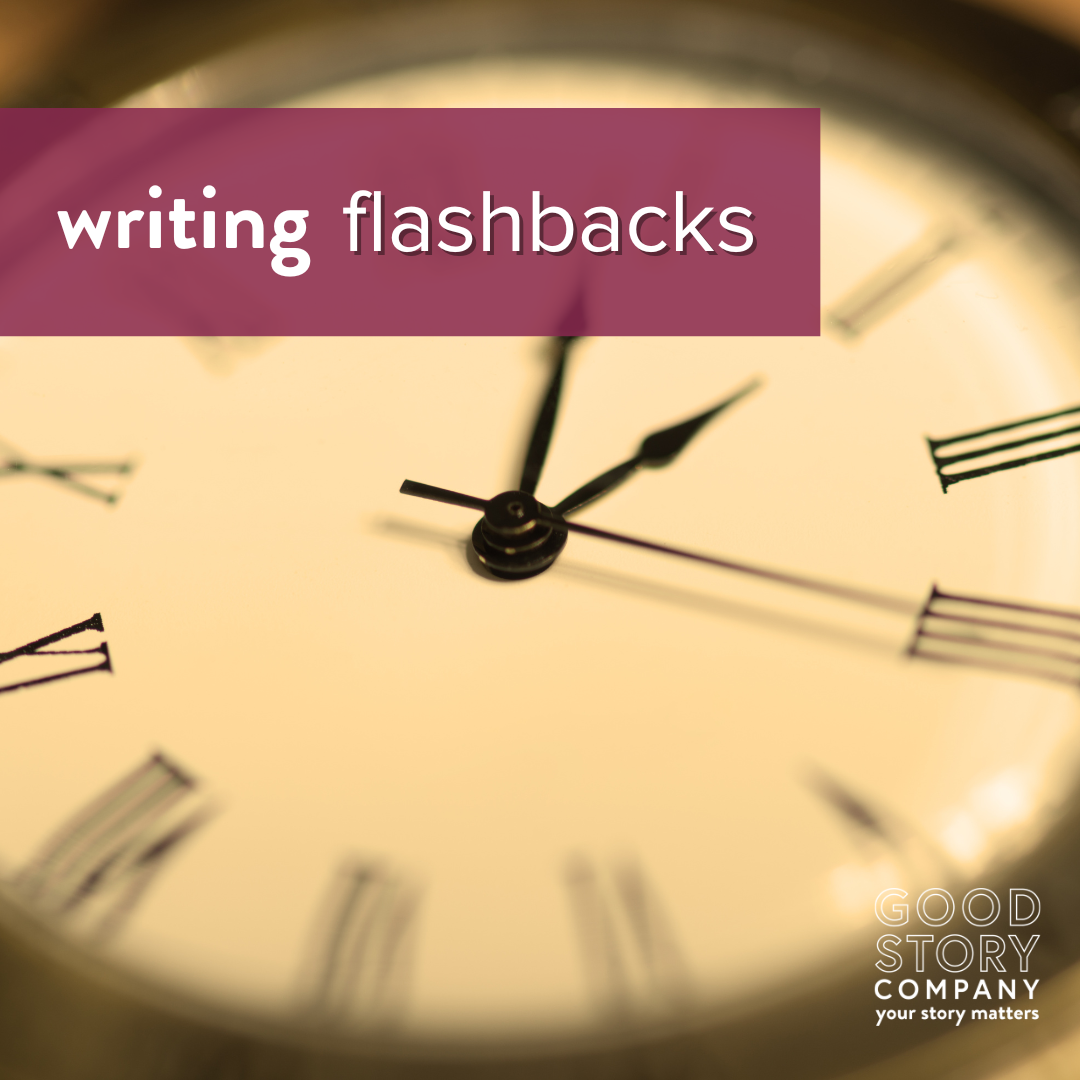
Writing Flashbacks
Writers are often cautioned away from flashbacks, but they can connect the dots between the past and who the characters are now. Read on for tips on writing flashbacks that function well.
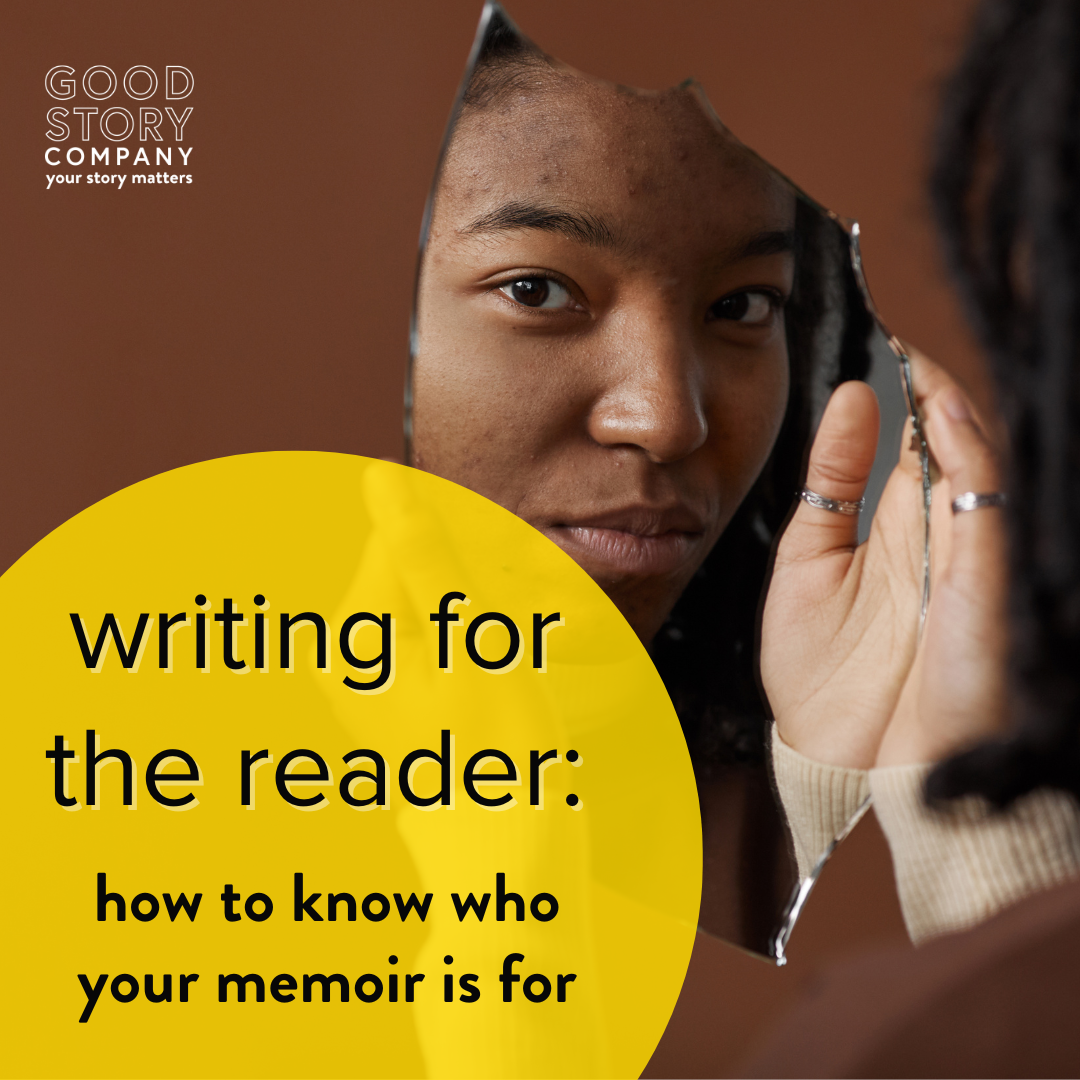
Writing For The Reader: How To Know Who Your Memoir is For
What happens when you’ve written a memoir but find that your words aren’t resonating with readers the way you thought they would? And upon that realization, what do you do or change to bridge the gap?
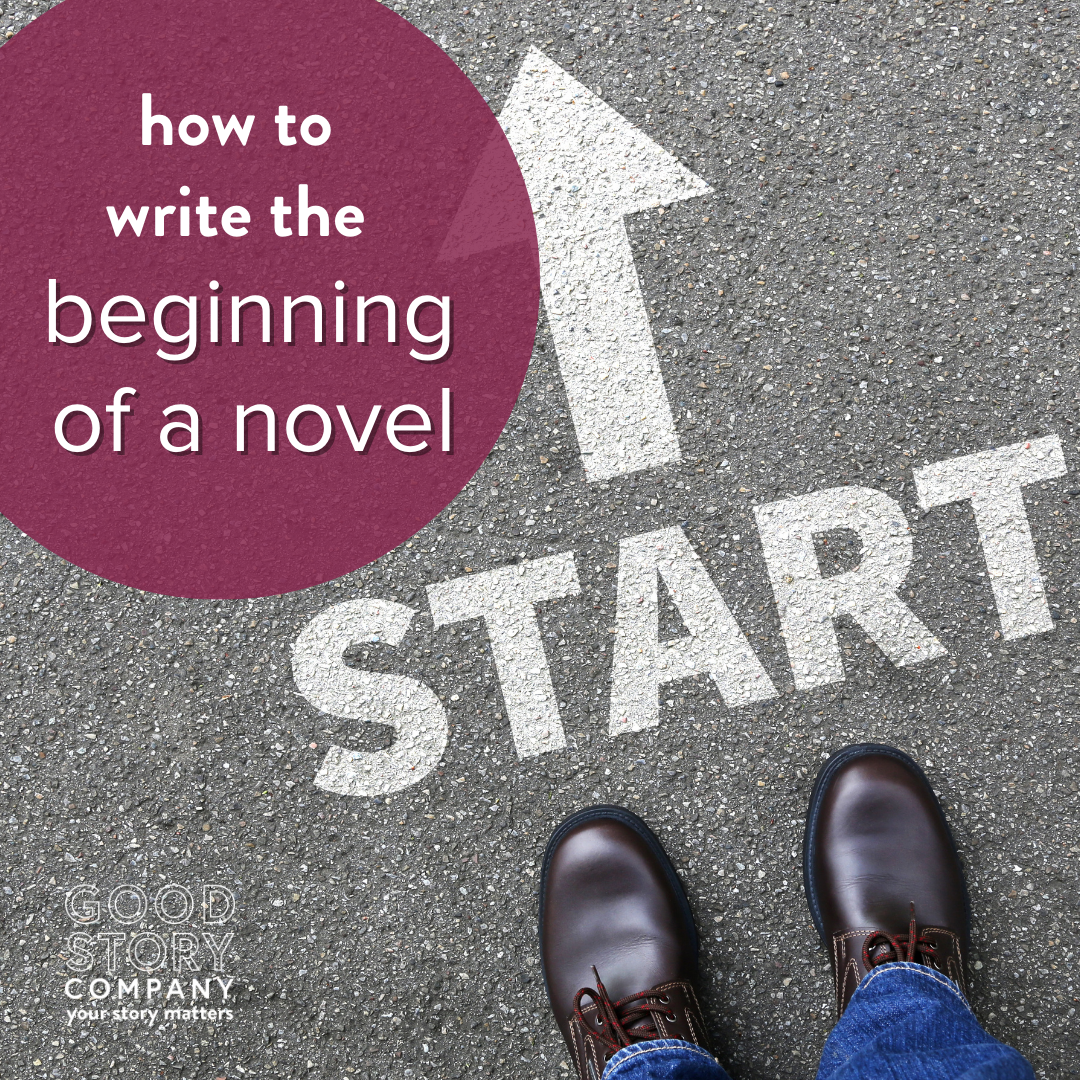
How to Write the Beginning of a Novel
The beginning of your story sets the foundation from which the plot will unfold. This foundation creates impact with the developments and conflicts that make up your narrative. If you need help with how to write the beginning of a novel, consider these three elements.

Daily Writing Practice: Five Tips For Writing More
Having a daily writing practice is one of the best ways to improve your writing. The more you write, the more you’re able to learn about your style and voice. So, here are five tips to make this dream a reality.

3 Helpful Tips for How to Rewrite a Novel
Rewriting a book doesn’t mean your idea or your writing are bad. It means there’s a better way to show readers the essence of what you’re trying to tell them. Here are 3 helpful tips to get you started!
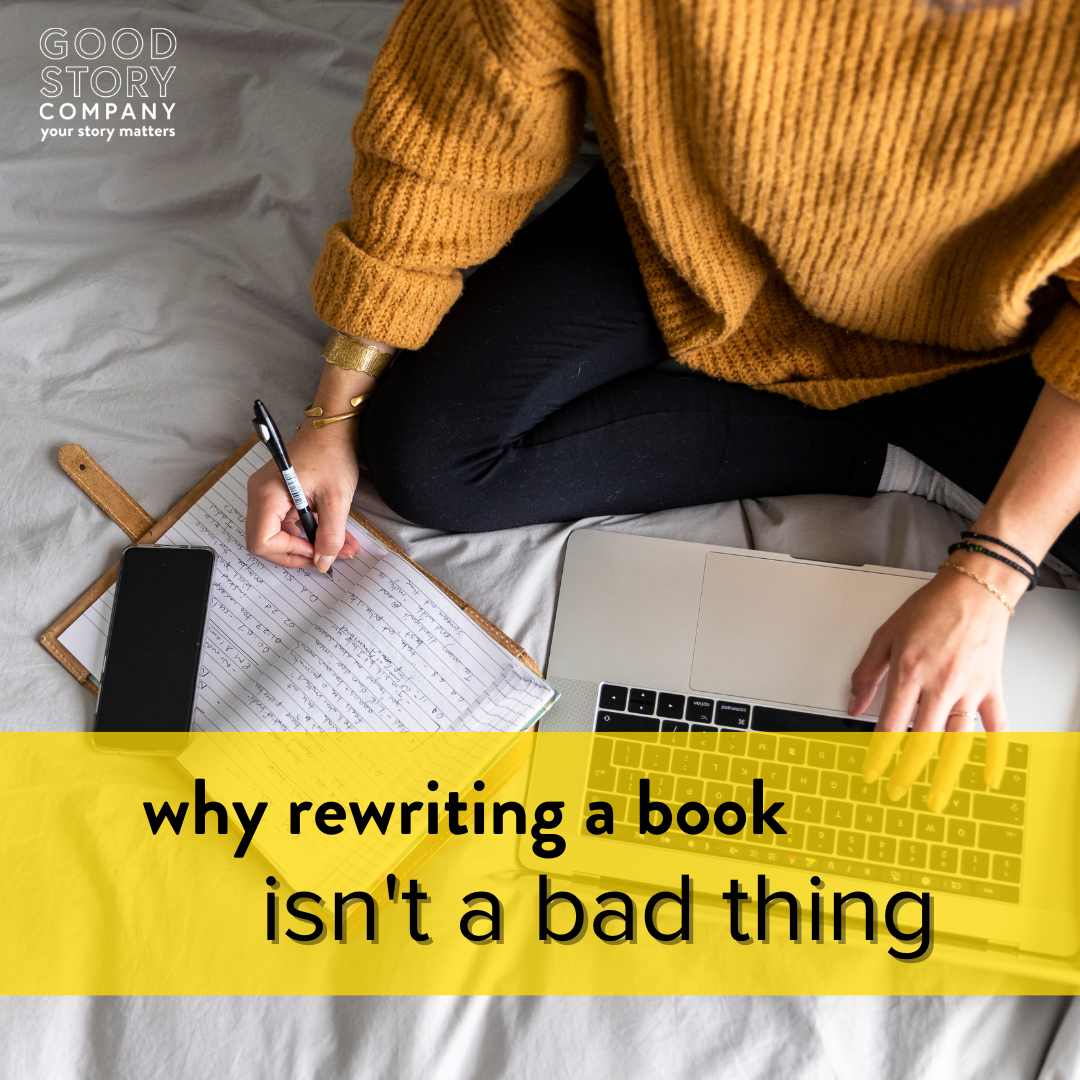
Why Rewriting A Book Isn’t A Bad Thing
Rewriting a book may seem like a daunting task, but it’s worth it. Not only will rewriting develop your narrative, but it’ll make you a better writer. Here’s how.

40 GOOD IDEAS FOR BOOKS to Get You Inspired
Uncap those pens, pop open those PCs, and crack your knuckles. It’s time to dive into good ideas for books, and how to brainstorm. Good Story Company is here to help you stay inspired with our quirky list of good ideas for books.

Writing The Opening Line
The opening line is your first opportunity to make an impression and entice your readers. You should want the opening line to work for the story and be meaningful, but at the same time you don’t want it to do too much. Here’s how to find that balance.

Raising the Stakes
Raising the stakes is a great way to sew tension in your story, and fear of failure is something everyone can relate to. The constant battle between running toward the goal while running away from the alternative will keep readers engaged and invested in your characters. Know how to identify your stakes and when to make them bigger.

Show Don’t Tell
Show don’t tell is one of the first pieces of advice given to new writers. My first writing professor preached that we all STAY AWAY from exposition. Still, even with SDT etched into our minds, writers slip into exposition and description, missing opportunities to immerse their readers.

4 Helpful Tips For Writing Fresh Fantasy Picture Books
If you’re interested in writing a children’s picture book that uses fantasy elements to engage readers in a meaningful way, then you’ve come to the right place. In this post, we provide four tips on how to write original, highly engaging fantasy picture books that stand out!

The End of Camp NaNoWriMo: What to Do with Your Complete Manuscript
Now that you have a complete manuscript, you have some exciting decisions to make about what you want to do next. Whether Camp NaNoWriMo was a fun personal project or your first step on the path to publication, now is a great time to use your momentum to take your writing to new heights.

In Favor of Present Tense Writing
One of the first decisions we have to make before writing is what tense to use. Present tense writing is often overlooked in favor of past tense—but when is present tense the better choice?

The Unagented Submission
Writers are usually advised against braving the publishing world without an agent to represent them. Yet, unagented submissions exist for a reason, and there’s a time and place when they work—when they might even be the best option.

How To End A Novel
Your ending will make a lasting impression – one readers will carry with them after they put the book down. Here are some tips for writing an ending that will resonate with readers and get them excited for whatever you write next.

How To Be More Intentional With Chapter Structure
Chapter structure, like plot structure, is key to achieving a believable and engaging narrative. Here’s how to make sure your chapters are complete and doing as much work for you and your story as possible.

Writing Secondary Characters
Even though narratives tend to focus on the life of one character – sometimes a few in multiple POV – the people in that character’s life are equally important. Giving them personalities, sometimes backstories and arcs of their own, are what make the narrative as a whole more realistic.

Writing Backstory: Know What’s Enough
Just like us, our characters all have pasts. Our histories are what make us who we are, and the events of our lives carry us to the present moment. Know when and how much to share about your character’s backstory so that your readers understand them and it doesn’t take away from the story.
